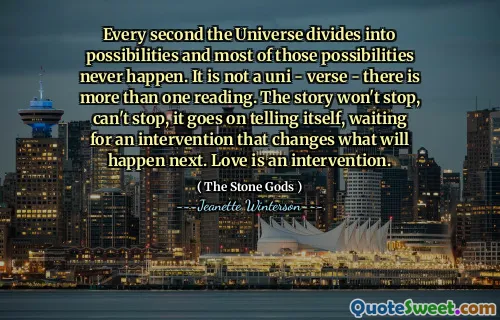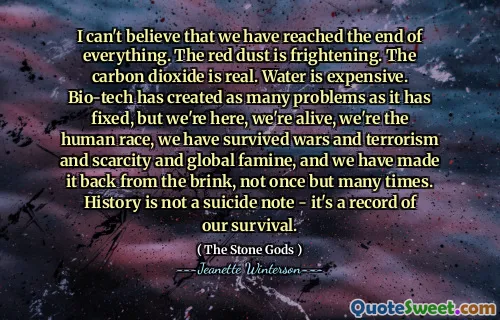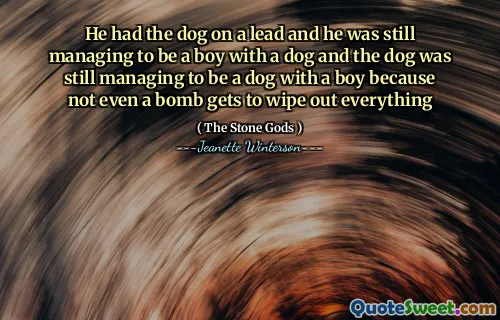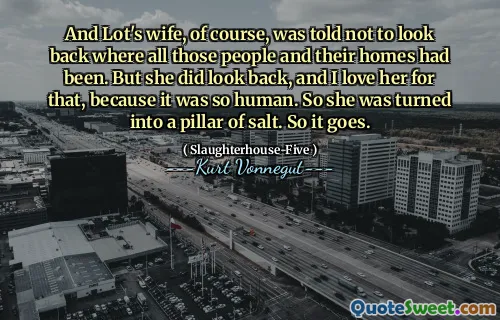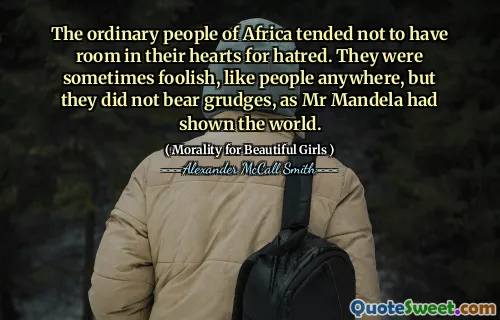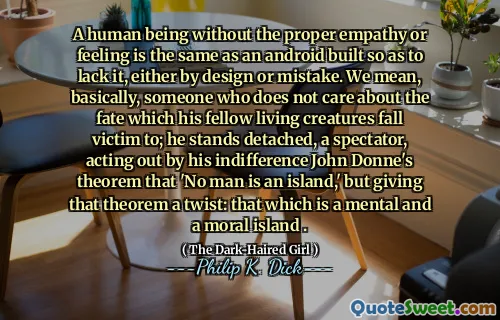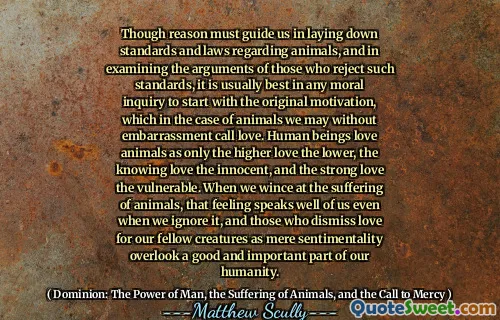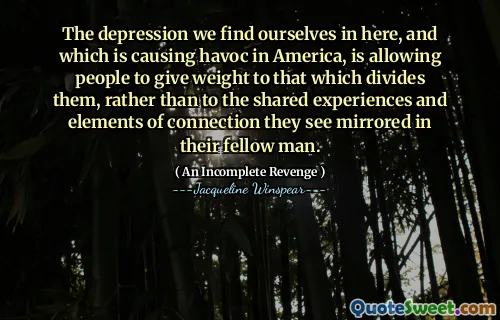
I can't believe that we have reached the end of everything. The red dust is frightening. The carbon dioxide is real. Water is expensive. Bio-tech has created as many problems as it has fixed, but we're here, we're alive, we're the human race, we have survived wars and terrorism and scarcity and global famine, and we have made it back from the brink, not once but many times. History is not a suicide note - it's a record of our survival.
This quote encapsulates a resilient perspective on human endurance amidst environmental and societal challenges. It reflects a sense of acknowledgment of our current dire circumstances—the red dust symbolizing environmental degradation, the tangible threat of rising carbon dioxide levels emphasizing climate concerns, and the high cost of water highlighting resource scarcity. Despite these pressing issues, the sentiment is one of perseverance and hope. It reminds us that, throughout history, humanity has faced existential threats such as wars, terrorism, shortages, and global famine, yet we have continually found ways to survive and adapt. The assertion that history is not a suicide note but a record of our survival encourages a view of history as evidence of our resilience and capacity for recovery, even in the face of seemingly insurmountable odds. This perspective urges us to reflect on the importance of resilience, innovation, and collective effort in overcoming challenges. It also emphasizes humility, acknowledging the damage wrought but also the human spirit's tenacity that has allowed us to persevere, learn, and sometimes even thrive despite adversity. Such a viewpoint is vital in inspiring a proactive approach to solving current crises rather than despair, fostering a mindset of hope and determination—an essential outlook for sustainable future development and environmental stewardship.
